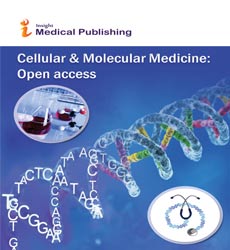Abstract
Identification of Genetic Diseases Using Breast Milk Cell Analysis: The Case of Transient Neonatal Zinc Deficiency (TNZD)
Infants exclusively breastfed with zinc-deficient milk, develop transient neonatal zinc deficiency (TNZD) due to inactivating mutations in the maternal zinc transporter SLC30A2/ZnT2. In the current study, DNA sequencing of SLC30A2/ ZnT2 in a mother exclusively breastfeeding her infant which presented with TNZD symptoms, identified a single nucleotide missense mutation c.839G>T. This mutation was initially predicted to result in a single amino acid substitution p.(Gly280Val). However, c.838G was also predicted to be located close to a splice site. Hence, using sequencing of mRNA isolated from the mother’s breast milk cells, we discovered that the c.839G>T mutation creates an alternative 3’-splice sites, introducing a 27 bp exon skipping. This mutant protein lacking 9 amino acids (Δ9AA) failed to dimerize with the wild type (WT) ZnT2 protein and displayed enhanced degradation. Furthermore, the zinc transport ability of this mutant protein was completely lost as shown by intracellular zinc accumulation using the zinc fluorescent probes Zinquin and Fluozin 3 AM. These findings reveal that the Δ9AA-ZnT2 variant did not exert a dominant negative effect over the WT ZnT2 protein. Hence, we provide direct evidence that a haploinsufficiency state occurs in women with heterozygous SLC30A2/ZnT2 mutations. Importantly, we herein developed a novel genetic test of expressed genes using maternal breast milk cells, which is well suited for the early diagnosis and prevention of TNZD and possibly other micronutrient deficiencies.
Author(s):
Yarden Golan, Baruch Yerushalmi, Edna Efrati, Yehuda G Assaraf
Abstract | Full-Text | PDF
Share this

Google scholar citation report
Citations : 187
Cellular & Molecular Medicine: Open access received 187 citations as per google scholar report
Abstracted/Indexed in
- Google Scholar
- China National Knowledge Infrastructure (CNKI)
- Cosmos IF
- Geneva Foundation for Medical Education and Research
- Secret Search Engine Labs
Open Access Journals
- Aquaculture & Veterinary Science
- Chemistry & Chemical Sciences
- Clinical Sciences
- Engineering
- General Science
- Genetics & Molecular Biology
- Health Care & Nursing
- Immunology & Microbiology
- Materials Science
- Mathematics & Physics
- Medical Sciences
- Neurology & Psychiatry
- Oncology & Cancer Science
- Pharmaceutical Sciences

